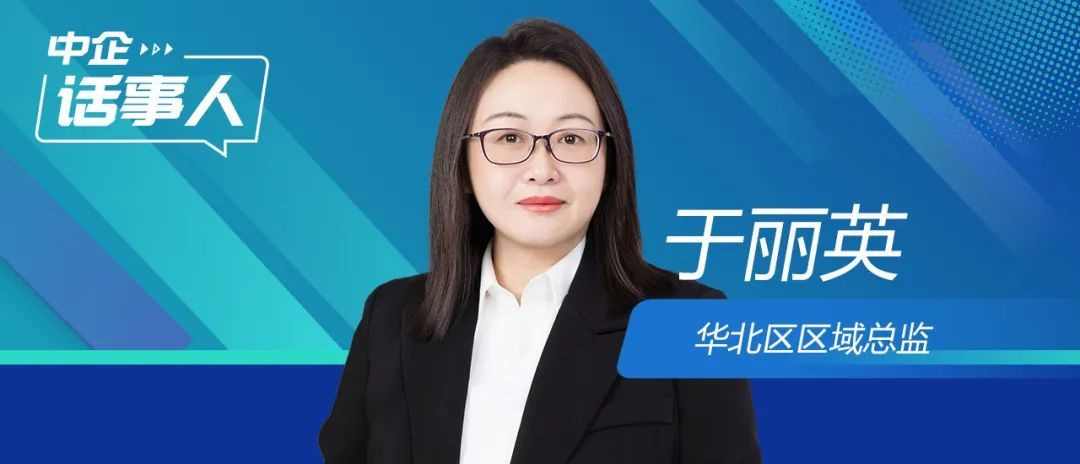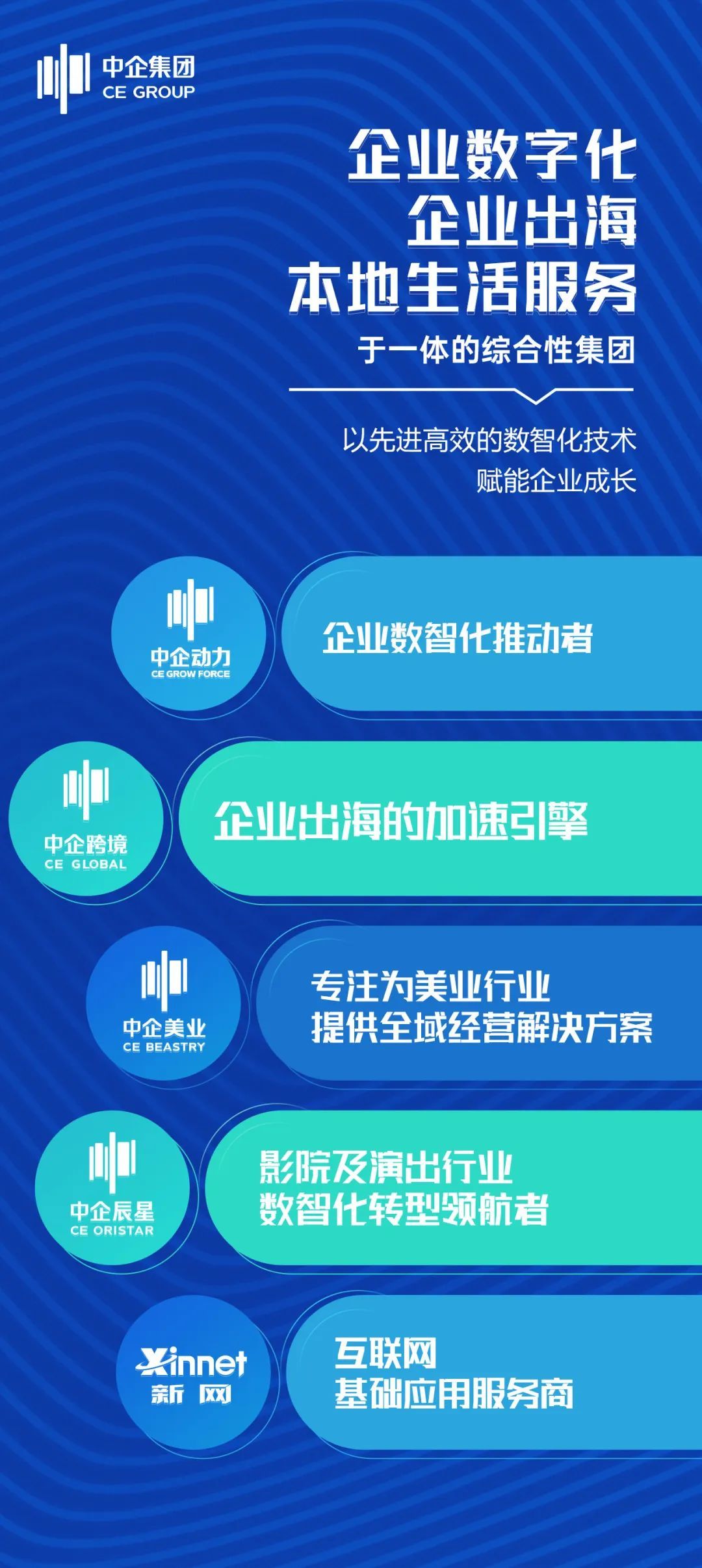Dialogue with Liying Yu——When challenges become the norm, how to build a "winning team" for performance growth?
2025-03-17
China Enterprises Group

At Zhonqi Group, every individual who creates value for clients and speaks for the Group's future is a "Zhonqi Spokesperson." They use their wisdom and actions to drive the Group's breakthroughs and growth in the field of digital services for internet enterprises. On the occasion of Zhonqi Group's 25th anniversary brand refresh, “Zhonqi Spokesperson · Discussing Digital Growth” column is officially launched, taking you to meet these industry witnesses and practitioners, listening to their insights and stories, and feeling the moments of their growth with the team. These real moments carry the power of Zhonqi people's progress and also reflect our common future.
The value of managers often blossoms in the darkest moments. In 2024, the Beijing-Tianjin-Hebei and Northeast regions merged into the North China region. Faced with the multiple challenges of team integration, market competition, and business breakthroughs, Yu Liying, the regional director of Zhonqi Power North China region, rose to the challenge, led the team to adjust quickly, and delivered a hard-core answer sheet of top performance.
This is not the first time Yu Liying has led her team to win the top performance award. Since taking over the Beijing-Tianjin-Hebei region in 2010, she has repeatedly broken through performance bottlenecks and maintained the top sales position. She has not only accumulated rich management experience but also built a "winning team" for the Group.
“Have you ever seen a duck swimming? On the surface of the water, the duck seems calm and composed, but under the water, you will see its webbed feet paddling hard. Behind every brilliant achievement, there is unimaginable persistence and struggle.”
Yu Liying uses the "duck law" to describe the team's fighting spirit. In her opinion, true composure is the result of accumulation and hard work. This is also the key to her team's repeated victories over the years: monthly communication, review, and co-creation meetings; building a high-quality team, management personnel going to the front line to act as "personal coaches"... These continuous efforts under the water have created an inimitable moat for the North China region in industry competition.
In this interview, we will delve into how Yu Liying led the North China region to achieve consistent top performance and reveal the little-known behind-the-scenes efforts and management wisdom.


From Low Point to Champion: Career Growth and Leadership Transformation
Group Editor: Looking back on your career development, from when you first joined Zhonqi Power to achieving top performance for many years, what key nodes shaped your management style and decision-making thinking?
Yu Liying: Since taking over the Beijing-Tianjin-Hebei region in 2010, I have led the team through a process of transformation from low point to success. In September 2024, the Beijing-Tianjin-Hebei and Northeast regions merged to form the North China region. No matter how the organization adjusts, we always adhere to the belief of "the strong are honored," aiming to move from small victories and big victories to "constant victories." This goal and belief are always implemented in the hearts of every partner in the region.
In 2013, we achieved our performance target of 80 million for the first time, and in 2017, we became the first region in Zhonqi Power to achieve annual sales exceeding 100 million, raising the company's overall performance target. After exceeding 100 million, we embarked on a "five-consecutive-championship" journey, successfully achieving it by 2021.
In 2024, the Beijing-Tianjin-Hebei and Northeast regions merged into the North China region. During the integration process, we encountered challenges such as team integration and management structure adjustments. However, the eight companies in the North China region still worked together and ultimately won the championship again. This process made me even more convinced:
Goal-oriented: Setting clear and quantifiable goals and continuously strengthening execution.
Team culture: Establishing a strong cultural identity so that all members form a common value for striving together.
Deep motivation: Ensuring that everyone in the team can see how their efforts translate into actual results.
Success is never easy. Behind every seemingly effortless achievement lies persistent struggle. It's like the "duck law"—seemingly calm on the surface, but paddling hard underwater.

The Winning Strategy for Long-Term Leading Performance
Group Editor: In the past five or six years, your team has almost always been at the top of the performance rankings, with only one year not winning the championship. Maintaining a leading performance for a long time is not easy. How did you do it?
Yu Liying: Maintaining a long-term lead requires clear goals and strict process management. We have established high-quality communication meetings, review meetings, co-creation meetings, and sharing mechanisms to ensure that team members are always in optimal fighting condition.
But more importantly, we need high-quality partners. In our work, we attach great importance to the quality of being "reliable." In management, I believe that selection is more important than effort. Therefore, the core team must have a high sense of responsibility and execution. Reliable colleagues mean that we can trust each other in key decisions and confidently delegate authority in task advancement. This high-credit work atmosphere is an important cornerstone of our success.
Group Editor: In 2024, you provided the Group with many managers and a complete organization. Despite the flow of core personnel, you still led the team back to the top. Faced with the challenge of team restructuring, how did you quickly rebuild the team's combat effectiveness? If you were to summarize it in three points, what would you consider to be the most crucial?
Yu Liying: The adjustment period is the most vulnerable time for a team, but it is also an opportunity to reshape competitiveness. Three points of experience are crucial:
First, build a "reliable" management team and form an "iron triangle" mechanism. During times of change, what is most needed is a stable management team. I immediately focused on "finding the right people" to ensure that key positions are held by experienced and combat-ready managers. At the same time, establish an efficient decision-making mechanism, allowing the regional management team, functional teams, and sales teams to form a strong support system, enabling them to lead the entire team to steady progress.
Second, fully authorize and stimulate organizational vitality. One of the most important abilities of a manager is to trust the team and give them enough space. In the integration process of the North China region, I emphasized "back-to-back trust," that is, after reaching a consensus, fully authorizing team members to play to their strengths. This trust, in return, results in more efficient execution.
Third, go deep into the front line and be a "personal coach." As a manager, you cannot just make decisions; you must also personally participate and provide targeted support to the team. You must also integrate resources to ensure that strategic execution is implemented.

From "Scale Growth" to "Quality Growth"
The North China Region is Embracing New Opportunities in Digitalization
Group Editor: Currently, enterprise digital transformation is entering deep water, and customer needs are undergoing structural changes. Combining the characteristics of the North China market, what new growth opportunities have you observed?
Yu Liying: North China's clients are mainly concentrated in traditional industries such as steel, energy, and machinery manufacturing. Their digitalization needs are evolving from single website construction to one-stop digital marketing, with increasing focus on data-driven and precision marketing. At the same time, some manufacturing enterprises are facing relocation pressure, and we need to enhance the value of existing customers through refined services.
Group Editor: In the face of a new round of market changes and competition, what are the new business development plans for the North China region?
Yu Liying: In the future, our core strategy will shift from "scale growth" to "quality growth," creating a more sustainable business model. We will focus on three key areas:
First, expand the county-level market and tap into the incremental market in lower-tier cities. Eight companies in the North China region will integrate their experience, strengthen the development of markets outside their immediate area, and promote the growth of county-level clients.
Second, promote deep cultivation of industry scenarios. Help manufacturing enterprises transform to a "digital portal + industry scenario value-added services" model, provide more precise industry solutions, and actively expand foreign trade customers.
Third, enhance customer stickiness and strengthen service value. Transform from simply "selling products" to a "selling services" model, enhancing long-term customer value through a professional service system.
Group Editor: Finally, what are your expectations for the team and the future?
Yu Liying: The past is but a prologue. We will not be satisfied with past achievements, but will embrace challenges with a more open mind, bravely explore, continuously break through, and create a broader space for growth.



